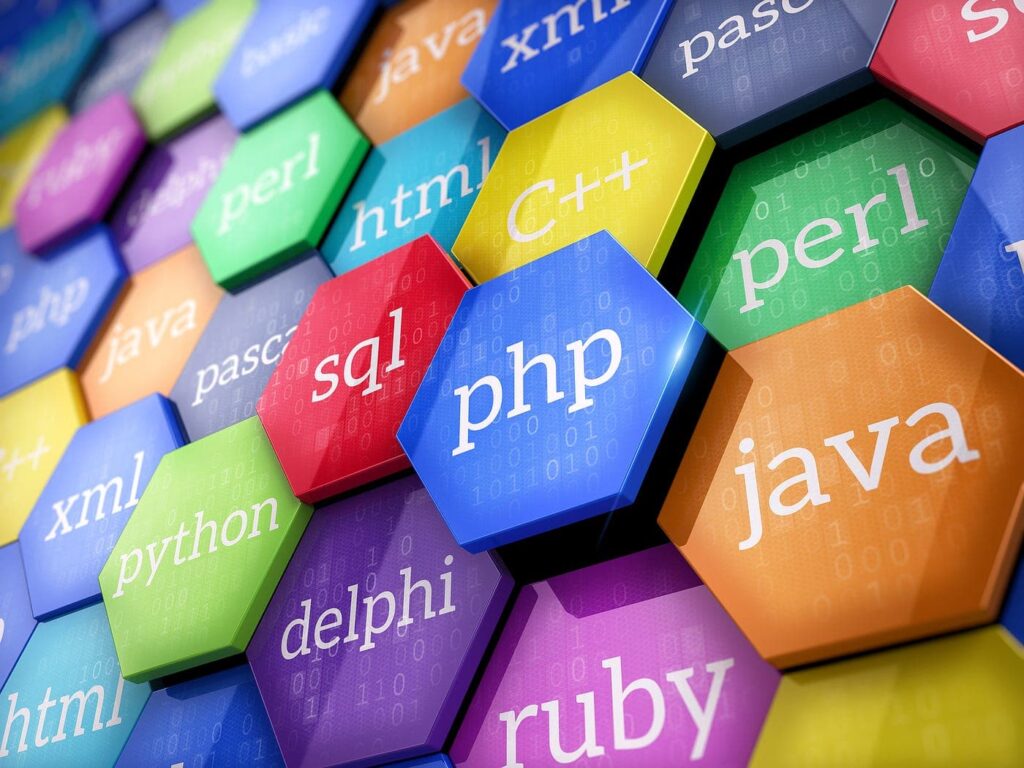The online casino industry is one of the fastest-growing sectors in tech. The expansion of global gambling markets and the rise of independent operators, including casinos not on Gamstop UK, has led to an unprecedented demand for skilled developers. But unlike mainstream app development, working in iGaming comes with its own rules, tools, and expectations.
This guide breaks down how to enter the online casino development space, what skills are truly needed, what tech stacks are used, and how to position yourself as a strong candidate in this unique corner of the tech world.
What Makes Casino Development Different?
Online casinos are not just websites. They are high-load, real-time systems that serve thousands of players simultaneously. Each user interacts with games, payments, support, and legal mechanisms — all within a system that must be fast, secure, and legally compliant.
Here’s what sets online casino development apart:
- Real-time interaction: Especially in live dealer games and multiplayer poker rooms.
- Regulatory integration: KYC (Know Your Customer), anti-fraud tools, and geo-blocking must be part of the backend.
- Game logic accuracy: Every outcome must be fair, tested, and based on a mathematical model.
- Payment complexity: Casinos need to handle fiat, crypto, and e-wallets across multiple jurisdictions.
These requirements mean developers in this space often need to be more than just coders — they need to understand systems design, data flow, and compliance at a deeper level.
Core Roles in Online Casino Development
There’s no single “casino developer” job title. Instead, multiple specialised roles depend on the part of the product:
1. Frontend Developer
- Works on the player-facing UI: game lobbies, account areas, and in-game interfaces.
- Should know React.js, Vue.js, TypeScript, and SCSS.
- Optimises visuals for mobile and tablet use.
- Often integrates animated elements for games or transitions.
2. Backend Developer
- Manages authentication, game logic, payment APIs, and user databases.
- Works with Node.js, Java, Go, PHP (especially Laravel), and SQL/NoSQL databases.
- Needs to handle multi-currency systems, promo logic, and fraud detection flows.
3. Game Developer
- Focused on the actual games: slots, table games, instant games.
- May use game engines like PixiJS, Phaser, or even Unity (for 3D games).
- Works closely with maths teams to turn RTP models into functioning logic.
4. QA Automation Engineer
- Builds test scenarios for games and system flows.
- Uses tools like Selenium, Cypress, TestRail, and Postman.
- Simulates edge cases like connection drops during gameplay or payment timeouts.
5. DevOps / SRE
- Guarantees the stability and uptime of casino servers.
- Works with Docker, Kubernetes, CI/CD tools, and monitoring systems.
- Handles release rollouts, backups, and incident response.
6. Mobile Developer
- Builds native casino apps (iOS/Android) or optimises PWAs.
- Uses Swift/Kotlin for native, or React Native for hybrid apps.
Technical Skills You’ll Need to Learn
Depending on the role you’re targeting, your skillset will vary. Below are some of the key areas that come up most often in online casino projects.

Programming Languages:
- Frontend: JavaScript, TypeScript, HTML5, CSS3, WebGL
- Backend: Node.js, PHP, Java, Go, Python
- Game Logic: JavaScript for 2D; C# or UnityScript for 3D
Tools & Frameworks:
- React, Vue, Angular
- Express.js, NestJS
- Laravel, Symfony
- Redis, PostgreSQL, MongoDB
- WebSocket (for real-time games)
- OAuth2, JWT (authentication flows)
Testing:
- Mocha / Jest (unit tests)
- Cypress / Playwright (end-to-end testing)
- Postman / Newman (API testing)
- JMeter (load testing)
Other:
- Git, Docker, GitLab CI/CD
- REST and GraphQL APIs
- Payment integration (Stripe, CryptoPay, etc.)
- Compliance APIs (GeoIP, identity verification)
You don’t need to master every technology listed, but knowing how they work together gives you a major edge.
Where to Learn Relevant Skills (Course Suggestions)
If you’re coming from a general web development background or just starting, here’s how to build a targeted learning path using online courses:
For Frontend Devs:
- Frontend Development Bootcamp (HTML/CSS/JS/React basics)
- Advanced JavaScript and TypeScript
- Canvas and WebGL for Game Dev
- Responsive UI Design for Mobile Casinos
For Backend Devs:
- Node.js and Express from Scratch
- PHP Laravel for Beginners to Advanced
- Secure Payment API Integration
- Building Real-Time Systems with WebSocket
For Game Developers:
- PixiJS or Phaser Game Development
- Unity Game Dev Specialisation
- Mathematics Behind Slot Game Algorithms
For QA Testers:
- Automation Testing with Selenium and Cypress
- Writing and Organising Test Cases in TestRail
- REST API Testing with Postman
Many of these courses are available on Udemy, Coursera, and freeCodeCamp. Supplement them with real casino UI examples and code challenges focused on real-time logic.
Understanding the Legal and Ethical Layer
Unlike general software development, the casino industry is closely tied to regulation and player protection. As a developer, you must understand these domains — even if you’re not handling legal documents.
Key compliance factors:
- KYC/AML: Developers need to build secure flows for identity checks and anti-money laundering reporting.
- RNG Certification: Games often go through audits to prove randomness. You may have to implement logs, encryption, or compliance hooks.
- Geo-blocking: Code must restrict users from certain countries based on IP or device fingerprinting.
- Responsible Gambling Tools: Developers may build deposit limits, time-outs, and self-exclusion systems.
These features are part of every major project in this space. Ignoring them can lead to compliance failures, penalties, or player exploitation — all of which damage company reputations and careers.
How to Build a Portfolio That Attracts Casino Recruiters
Unlike general app developers, casino companies often expect candidates to show:
- UI design thinking — can you balance clarity with excitement?
- Understanding of event-driven logic — e.g., spins, timeouts, triggers.
- Secure handling of financial or transactional data
- Scalability — can your code handle thousands of concurrent users?
What to include in your portfolio:
- A mock slot game (even a simplified one) written in JS or Unity.
- A basic player dashboard with bonus tracking and balance updates.
- A fake payment flow using sandbox APIs.
- Automation tests simulate gameplay under delay or error.
Deploy your demos online, add GitHub links, and write a short breakdown of each project’s architecture.
Where to Find Jobs in the Casino Tech Space
Many traditional job boards don’t categorise “casino tech” roles well. Here are the most effective places to look:
- iGaming-specific portals:
iGamingJobs, Pentasia, BettingJobs, EveryMatrix careers - LinkedIn:
Search for roles using terms like “Game Developer (iGaming)” or “Casino Software Engineer” - Remote job boards:
Many roles are fully remote, especially for crypto casinos or casinos not on Gamstop UK. Try: We Work Remotely, Remote OK, Turing, Lemon.io - Company websites:
Big names in casino tech often post roles directly: SoftSwiss, Evolution, Pragmatic Play, Play’n GO, Endorphina
Salary Expectations (UK and EU)
Salaries vary based on role and location, but here’s a ballpark for 2025:
| Role | UK Salary Range | Remote EU (avg/month) |
| Frontend Dev | £40,000 – £65,000 | €3,000 – €5,500 |
| Backend Dev | £45,000 – £75,000 | €3,500 – €6,000 |
| Game Dev (JS/Unity) | £50,000 – £80,000 | €4,000 – €7,000 |
| QA Automation Engineer | £35,000 – £60,000 | €2,800 – €5,000 |
| DevOps / SRE | £60,000 – £90,000 | €4,500 – €7,500 |
Many companies also offer bonuses, tokens, or revenue share schemes depending on the business model (especially crypto casinos).
Final Thoughts
Starting a career as a developer in the online casino industry isn’t just about building flashy games. It’s about solving complex technical challenges in real time, across payments, logic, UI, and compliance — all while keeping performance tight and the product engaging.
If you’re motivated by tech that moves fast, touches real money, and serves millions of users globally, this field has room for you. Start by building the right skills, learning the ecosystem, and showcasing real-world examples in your portfolio.
And remember: casinos not on Gamstop UK and global operators alike are always looking for developers who know how to combine creativity with control, and code that never crashes when the stakes are high.
